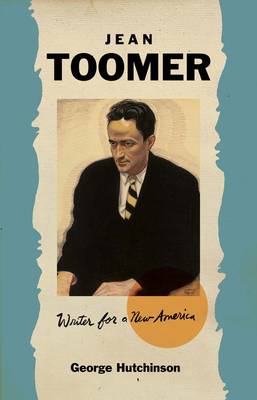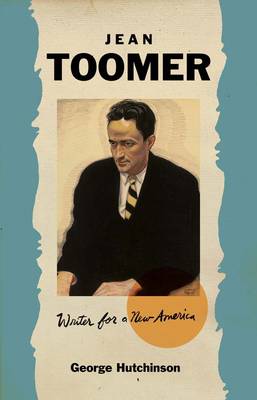
- Retrait gratuit dans votre magasin Club
- 7.000.000 titres dans notre catalogue
- Payer en toute sécurité
- Toujours un magasin près de chez vous
- Retrait gratuit dans votre magasin Club
- 7.000.0000 titres dans notre catalogue
- Payer en toute sécurité
- Toujours un magasin près de chez vous
33,95 €
+ 67 points
Description
A critical biography of Harlem Renaissance writer Jean Toomer and his lifelong struggle to transcend race, by an award-winning author The poet and novelist Jean Toomer (1894-1967) was among the most influential figures of the Harlem Renaissance, inspiring generations of Black writers with his 1923 modernist masterwork Cane. Yet his mission was to awaken Americans to the formation of a new "American" race that would supersede the "old" racial categories. Award-winning biographer George Hutchinson reveals how Toomer's racial theory shaped both his literary genius and his personal struggles. Born into the Black elite in Washington, D.C., Toomer was highly sensitive to the color line and able to move across it. Toomer engaged in a lifelong struggle to be released from this system, reinventing himself racially, spiritually, and artistically not as a Black man but as a "superman." From his early attraction to physical culture through his search for Cosmic Consciousness, Toomer aspired to shape a new modern sensibility alongside his bohemian contemporaries Georgia O'Keeffe, Alfred Stieglitz, Langston Hughes, and Nella Larsen. Yet his refusal to identify as Black, in tandem with his messianic calling, came at the cost of his literary career and the women who loved him. Hutchinson shows how the tortures of American racism shaped Toomer's life--and how the struggle to birth a new "American" identity marks his art.
Spécifications
Parties prenantes
- Auteur(s) :
- Editeur:
Contenu
- Nombre de pages :
- 352
- Langue:
- Anglais
- Collection :
Caractéristiques
- EAN:
- 9780300267730
- Date de parution :
- 18-08-26
- Format:
- Livre relié
- Format numérique:
- Genaaid
- Dimensions :
- 156 mm x 235 mm

Les avis
Nous publions uniquement les avis qui respectent les conditions requises. Consultez nos conditions pour les avis.






